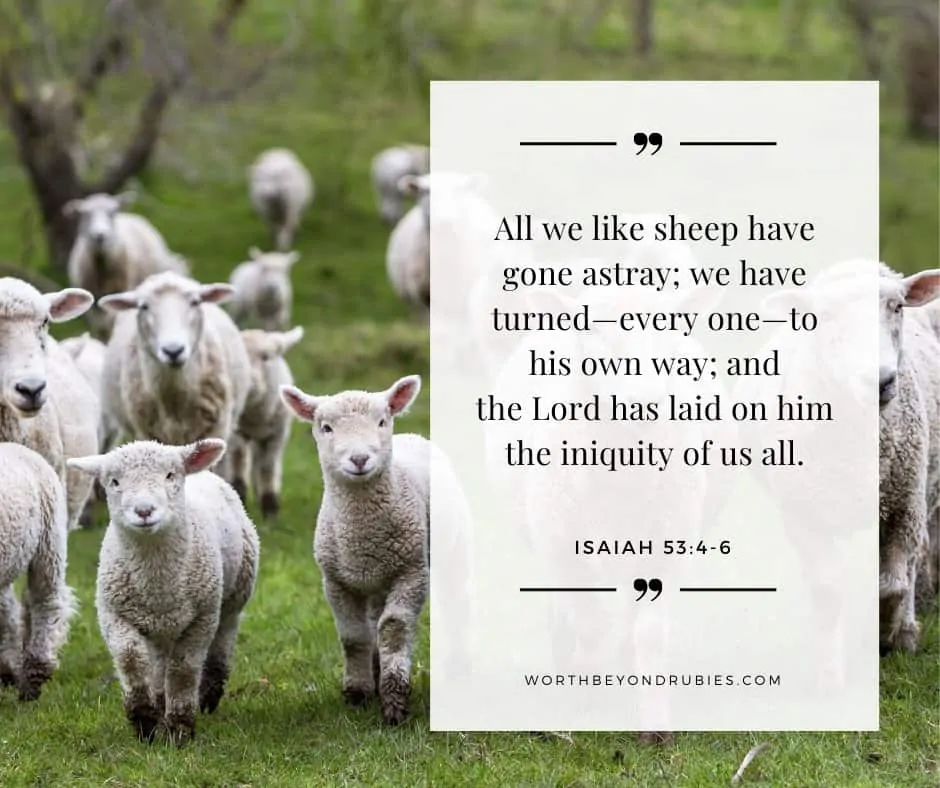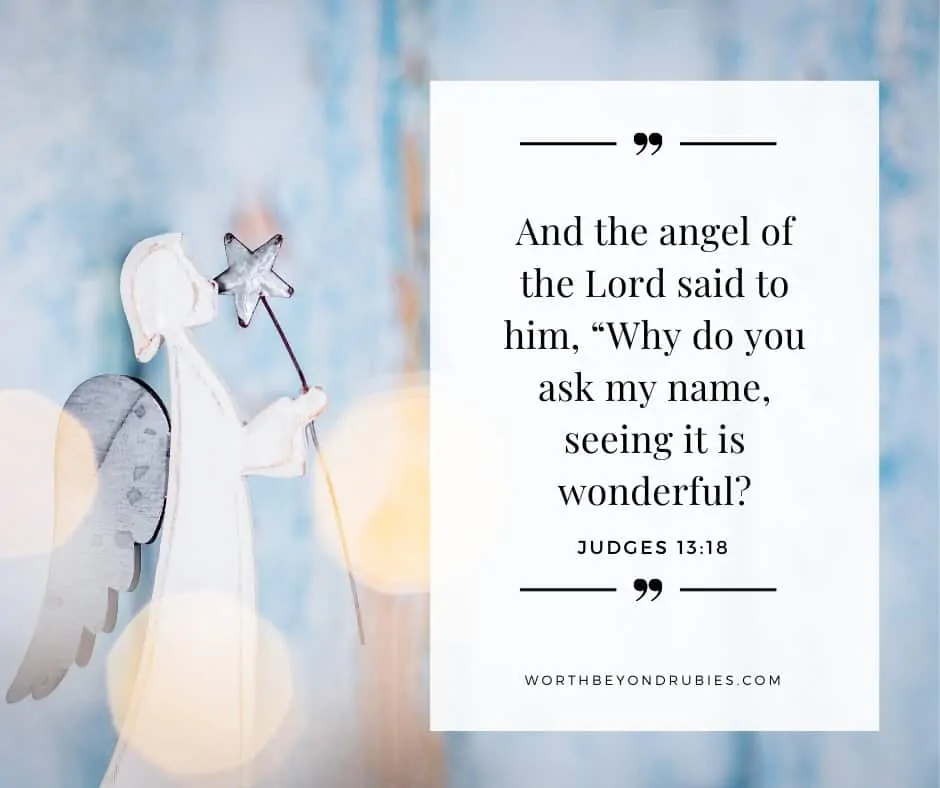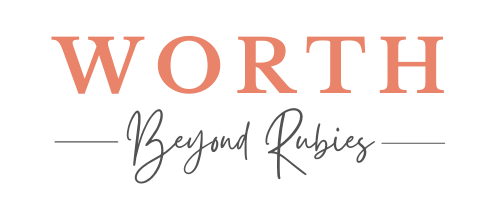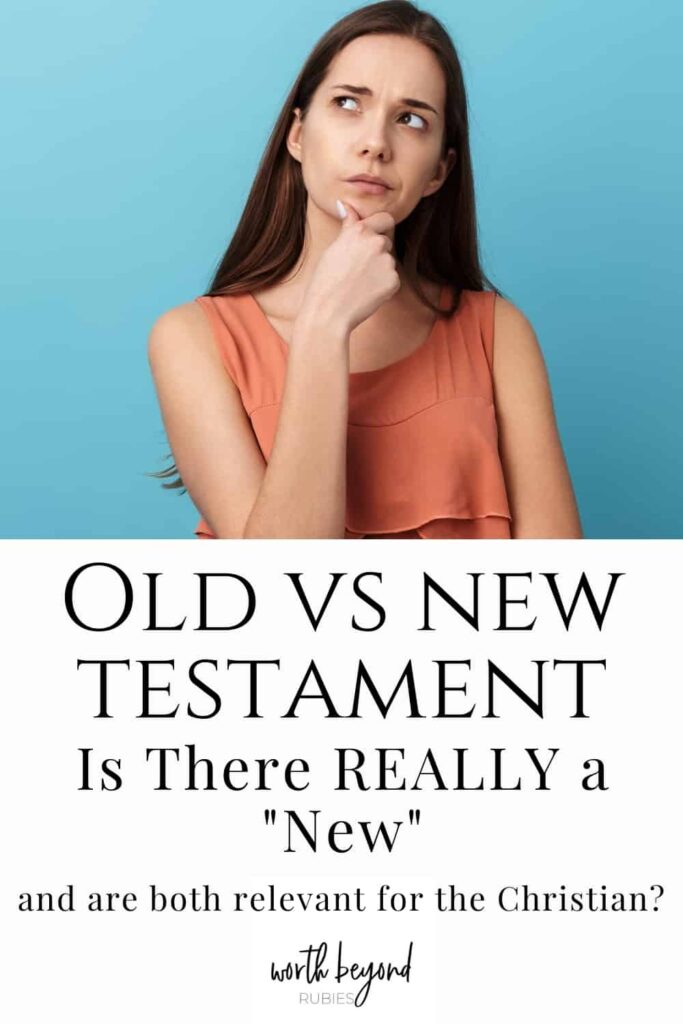Old Testament vs New Testament – Are Both Relevant for Christians?
Please note that this article may contain affiliate links. As an Amazon Associate, I earn on qualifying purchases at no additional cost to you. You can read more at the bottom of this page or read my full disclosure on my Affiliate Disclosure Page
As a Jewish believer, I am often asked by people what I think of the Old Testament vs the New Testament. They wonder if I feel one is more important or relevant than the other or if the “new” replaced the “old”. So in this post, I am going to address these questions and explain why it is important for Christians to not only read both the Old and New Testaments, but to study each of them.
Updated and republished from January 16, 2020

Old Testament vs New Testament – What is the Difference Between Them?
The Old Testament or Tanakh
I think before we launch into the “why” of reading the Old Testament, we should examine the Old Testament vs New Testament, what the Old Testament is and the differences between the two.
The “Old Testament” is a name I am personally not at all fond of since it implies something that is outdated, replaced, no longer valid.
That couldn’t be further from the truth.
I prefer ‘Tanakh’ which in Hebrew is an acronym for the Torah or 5 Books of Moses, (These are known as the ‘Teachings” of Moses or the Pentateuch), the Nevi’im or Prophets, the Ketuvim or Writings. Sounds intimidating, right?
And that right there is the issue in a nutshell. People find the Tanakh or Old Testament with all its genealogies and laws, intimidating. But we will address that in a moment.
For the purposes of this post, I will use the term “Old Testament” since that is how most Christians recognize it.
As I mentioned, in addition to Torah, we have the Nevi’im or Prophets. We have Prophets like Ezekiel, Isaiah and so on.
Then we have the Ketuvim or Writings. These are composed of books like Psalms, Proverbs, and so on.
To break this down even further, the Tanakh or Old Testament is compiled of:
- Law
- History
- Poetry and Songs
- Major Prophets
- Minor Prophets
The New Testament or Brit Chadasha
The New Testament (or New Covenant) is another name I am not personally fond of since it carries the implication that it replaced a part of God’s Word or replaced God’s covenant with Israel and that is simply NOT the case. God is not a covenant breaker. But since it is known by most by this name, for the sake of this post I will leave it as is.
The New Testament is compiled of:
- The Four Canonical Gospels
- The Acts of the Apostles
- The Epistles or Letters
- Prophecy
Even though I am going to use the term New Testament in this post because people are familiar with it and because the purpose of this post is NOT to change people’s terminology, I feel I would be doing everyone an injustice to not cover what the name Brit Chadasha (again, often mistranslated into New Testament) really means.
‘Brit’ is Hebrew for covenant so that part is accurate. However, the word ‘chadasha’ is where the issue arises.
‘Chadasha’ is a word that means new or renewal, but not new in the way we think of it as in replacing something old. It is used in the sense of new as in refreshed. For example, Rosh Chodesh is New Moon in Hebrew and ‘Chodesh‘ comes from the same root word as ‘Chadasha’ and it represents the beginning of a new month on the Hebrew calendar.
Now, the moon is not new every month and the Hebrew month is also not new…they are just renewed. It’s the same moon we have always had. It’s not as though each month we have a brand new moon that replaces the old moon. It’s just new in the sense that it has completed its cycle and we are seeing it renewed again in its fullness.
Think of Brit Chadasha or New Testament as “Renewed Covenant” and not ‘new’ in that it replaces an “old”. Again, God is NOT a covenant breaker.
For those who believe that it was not God that broke covenant but Israel, let me suggest you study Israel’s history. You can even simply look at the Book of Judges. Israel was constantly in a cycle of Disobedience-Judgment-Repentance-Redemption. God did not just decide one day that the “Repentance-Redemption” part of this relationship was over.
God made an everlasting covenant with the Jewish people and this was NOT replaced. To doubt this is to call His Word into question.
What People THINK the Difference Is
In many cases, people would say the difference between the Old Testament vs New Testament is one has Jesus and the other doesn’t. Fair enough.
They may also define the Old Testament as Law and the New as Grace.
Again, fair enough.
But that is not exactly true.
First, the Old Testament is not absent of Jesus at all. And we will explore that momentarily.
Second, the New Testament is not absent of law and the Old is not absent of grace. And we will go through that as well.
Third, the Old Testament is not law. It contains law. Torah does not mean “law”, it means “teaching”.
Old Testament vs New Testament – What the Difference REALLY Is
Again, putting this in a proverbial nutshell, the Old Testament foresees the Messiah and the New Testament reveals Him.
The Old Testament foresees the Messiah and the New Testament reveals Him. Click To TweetThe Old Testament paves the way for and proclaims the Messiah and the New Testament reveals Him to us.
BUT, one only need to look closely enough to see that, while He was not revealed by IDENTITY in the Old Testament, He was revealed by His characteristics, His ministry, and ultimately His atoning death for us. He was revealed through prophecy.
The Old Testament paints a picture of what the Messiah will be if not exactly WHO he will be. It speaks of His qualities, His coming, that He will be born in a specific place, that He will suffer, that He will come lowly and not as a conquering political figure.
But even more than that, it speaks of His love for us and His plan from the point of creation to the coming Messianic Kingdom.
Old Testament vs New Testament – Why is the Old Testament Important?
As I said earlier, Torah is often thought to be “THE LAW” but in actuality, Torah simply means teaching. While it contains law, it is not the law in and of itself. We learn much about the character of Hashem our God in the Torah.
Throughout Torah (Genesis, Exodus, Leviticus, Numbers, and Deuteronomy) we are introduced to God’s never-ending desire to dwell with His people.
The problem is, dark and light cannot co-exist. Where there is light, there cannot be darkness, so man with their sinful nature, could not dwell with God or enter into His presence.
So we are then introduced to faith. Yes, faith is what saved in the Old Testament!
The covenant God made with Abraham was a covenant based on faith. God promised Abraham children, land, blessings, and more in return for faith!
We see Abraham’s faith lived out in his obedience in taking Issac up to Mount Moriah.
God does not break covenant. Additional covenants do not negate previous ones. God’s covenant with Abraham did not negate His covenant with Noah. His covenant with David did not negate His covenant with Abraham.
What Does the Old Testament Say About Jesus? – The Prophets
The prophets were the mouthpieces of God. God spoke directly to the people through them.
But the prophets not only spoke FOR God, they spoke OF Him.
They not only spoke of Him, they described Him…in great detail. They had to or the people would be deceived.
They told the people where He would come from:
But as for you, Bethlehem Ephrathah,
Michah 5:2 NASB
Too little to be among the clans of Judah,
From you One will come forth for Me to be ruler in Israel.
His times of coming forth are from long ago,
From the days of eternity.”
They spoke of His mother:
Therefore the Lord Himself will give you a sign: Behold, the virgin will conceive and give birth to a son, and she will name Him Immanuel.
Isaiah 7:14 NASB
They spoke of His suffering:
“And I will pour out on the house of David and on the inhabitants of Jerusalem the Spirit of grace and of pleading, so that they will look at Me whom they pierced; and they will mourn for Him, like one mourning for an only son, and they will weep bitterly over Him like the bitter weeping over a firstborn.”
Zechariah 12:10 NASB
However, it was our sicknesses that He Himself bore,
Isaiah 53:4-6 NASB
And our pains that He carried;
Yet we ourselves assumed that He had been afflicted,
Struck down by God, and humiliated. But He was pierced for our offenses,
He was crushed for our wrongdoings;
The punishment for our well-being was laid upon Him,
And by His wounds we are healed.
All of us, like sheep, have gone astray,
Each of us has turned to his own way;
But the Lord has caused the wrongdoing of us all
To fall on Him.

They spoke of His death:
The Lord has bared His holy arm
Isaiah 52:10-12 NASB
In the sight of all the nations,
So that all the ends of the earth may see
The salvation of our God.
Depart, depart, go out from there,
Do not touch what is unclean;
Go out of the midst of her, purify yourselves,
You who carry the vessels of the Lord.
But you will not go out in a hurry,
Nor will you go as fugitives;
For the Lord will go before you,
And the God of Israel will be your rear guard
They spoke of Him coming again!
“I was watching in the night visions.
Daniel 7:13 TLV
Behold, One like a Son of Man,
coming with the clouds of heaven.
He approached the Ancient of Days,
and was brought into His presence.”
The Old Testament vs New Testament – The Result is Grace
When you read through what seems to you like seemingly endless laws, remember the result of those is grace.
When you sift through never-ending genealogies, the result of those is grace.
As you sit and tire of reading about bulls and lambs, the result of those is grace.
The result of all these things that you may find difficult or even tiresome in the Old Testament (let’s be honest, genealogies can go on a LONG time) set the scene for grace.
Why is the Old Testament important for you as a Christian?
Without those things, without learning about each and every detail of the sacrificial system, without understanding each detail of the priestly duties, we do not fully comprehend Scripture when it talks about Jesus as:
- A Priest according to the order of Melchizedek – what is a Priestly order? What did they do? How often did they serve? What was their own sacrifice? Who is Melchizedek and how does he differ from the other priests? (I am going to cover this in another post)
- A Lamb without spot or blemish – Why is Jesus called the Lamb of God? Why without spot or blemish? When was a lamb sacrificed and for what purpose?
- The Scapegoat – Isaiah 53:6 says “We all, like sheep, went astray; we turned, each one, to his own way; yet Hashem laid on him the guilt of all of us.” (CJB). What does it mean when it says the Lord laid on Him our guilt? Without understanding the role of the Scapegoat on the Day of Atonement, one does not fully comprehend why this was said of Jesus.
When I hear people say the Old Testament doesn’t apply to them it breaks my heart. My Messiah and your Messiah is throughout the Old Testament from Genesis 1 and onward.
What Does the Old Testament Say About Jesus?
In the beginning was the Word, and the Word was with God, and the Word was God. He was in the beginning with God. All things came into being through Him, and apart from Him not even one thing came into being that has come into being.
John 1:1-3 NASB
Now while this is a verse from the New Testament, it shows how Jesus was there at creation! He was not only WITH God, He is ONE WITH God. This is evident in Genesis:
Then God said, “Let Us make man in Our image, after Our likeness! Let them rule over the fish of the sea, over the flying creatures of the sky, over the livestock, over the whole earth, and over every crawling creature that crawls on the land.”
Genesis 1:26 TLV
He was the fourth man in the fire with Shedrach, Meshach and Abednego:
But he answered saying, “Look! I see four men walking about unbound and unharmed in the middle of the fire, and the fourth has the appearance like a son of the gods!”
Daniel 3:25 TLV
He appeared as an “angel of the Lord” whose Name is ‘Wonderful’ with the Hebrew translated ‘wonderful, incomprehensible, extraordinary’ according to Strong’s Concordance.
But the angel of Adonai said to him, “Why do you ask for my name? It is wonderful.”
Judges 13:18 TLV

Why is the Old Testament Important? – All Scripture is Given by Inspiration of God
2 Timothy 3:16-17 says:
All Scripture is inspired by God and useful for teaching, for reproof, for restoration, and for training in righteousness, so that the person belonging to God may be capable, fully equipped for every good deed.
TLV
Keep in mind that when this letter was written by Paul, there WAS no New Testament. The Scripture Paul is referring to here, the Scripture Paul read and Jesus read, is the Old Testament.
Paul is saying that the entirety of the Word, which again was the Old Testament in his day, is to help us be complete and equipped.
The Old Testament vs New Testament – But The Old is Intimidating
I get it, I totally do.
The Old Testament can be intimidating. It can be difficult to read. It can make us feel like we just don’t get it!
Now, I have read Ezekiel many times and I will honestly tell you that I am a HUGE fan of the Book of Revelation but Ezekiel intimidated me!! I could always feel my eyes go dim as I read about a wheel within a wheel.
Not every book of the Bible is going to be easy to read. So that is why, for those books you can rely on various tools for Bible study.
Bible Study Tools
Yes, as I mentioned, the one thing about the Old Testament vs New Testament is it CAN be a little difficult to understand.
Using tools like a concordance can help you look at the original meaning of the words to help make them clearer. A commentary can help you by seeing what lessons someone has drawn from the book and can point you to similar texts so you can see how they work together.
Tools are an amazing way to get deeper into Scripture.
Here are some Bible study tools I recommend:
- Blue Letter Bible – This app and website has amazing study tools built into it. You can use their concordance and commentaries, highlight text and more. It is one of my favorite study tools and it’s free!
- Bible Gateway – Another free tool that has multiple tools built in. You can do research, look at different translations and even has devotions. It also has an app as well as an online version. And you can find my two favorite English translations, the Complete Jewish Bible and the Tree of Life Bible on it!
- The Bible App by YouVersion – A fantastic app that you can even view your church’s weekly verses and sermon info on if your church utilizes it. There is an online tool as well as working with different smart home devices like Alexa! This is a must-have app for Christians I think!
Old Testament vs New Testament Summary
I hope this article encourages you to spend some time in the Old Testament and seek Jesus there. He is evident throughout! The enemy wants you to feel intimidated or that the Old Testament just ‘doesn’t apply’ because he wants to keep you from experiencing it.
We don’t have an Old Testament vs New Testament. They both come together as one Bible that teaches us about the one God we serve and about our Messiah Yeshua.
If you have chosen to study a book of the Old Testament, comment below and let me know what you plan to read and I might even do a Bible study on that book!
Make 2021 the year you dive into those intimidating books and see what God reveals to you!
Taken from the Complete Jewish Bible by David H. Stern. Copyright © 1998. All rights reserved. Used by permission of Messianic Jewish Publishers, 6120 Day Long Lane, Clarksville, MD 21029. www.messianicjewish.net.
Tree of Life (TLV) – Scripture taken from the Holy Scriptures, Tree of Life Version*. Copyright © 2014,2016 by the Tree of Life Bible Society. Used by permission of the Tree of Life Bible Society.
NASB – “Scripture quotations taken from the NASB. Copyright by The Lockman Foundation“
Pin, Social and Featured images courtesy of Priscilla Du Preez in Unsplash so check out her other images!


I love this for God never intended His Word to intimidate us. Yes, He means it to convict and change which might mean intimidate for some. But I love the Old Testament. I also love it that you share your being a Messianic Jew and what that means. I have spend some time pondering being Messianic and Jewish, even reading Stern’s Jewish Study Bible. I love the language of it, the names of God and His people used throughout. It is a powerful and beautiful way to read God’s Word.
Continue to follow His call upon your life, teaching us all that you learn. Praising Him for you.
Thank you so very much! Yes I love all of Stern’s Bibles and how he uses the Hebrew names. I try to use that translation as much as I can when I read. It really is beautiful. Thank you so much for taking the time to comment!
I know I’m a crazy one, but I LOVE the OT! I am currently reading through it in my daily Bible reading — isn’t everyone this time of year? I even find the geology fascinating! Just a couple days ago I was reading genealogy in Genesis, one unpronounceable name after another, and then, right there in the middle, the Bible throws in something like, “These are the sons of Zibeon: Aiah and Anah; he is the Anah who found the hot springs in the wilderness, as he pastured the donkeys of Zibeon his father” (Genesis 36:24). I had to laugh. Why was it important to record that he “found the hot springs in the wilderness, as he pastured the donkeys?’ IDK I just found it somewhat humorous. Thanks for this post and for emphasizing the importance of the OT. It IS still relevant and always will be! We have a post going live Friday morning about its importance. Maybe it’s just on everyone’s minds this time of year.
Pinned & tweeted.
Thanks for linking up at InstaEncouragements, friend!
I often wonder those things as well! I guess that is what happens when the writers not only captured the Word of God but amazing history as well. I know the Hebrews often identified people that way because of the lack of last names so they would often call someone by “son of….” or “the one who..” I do find it humorous as well how detailed it can get!! Thank you so much for sharing and for commenting!!
I’ve been in the Old Testament now for a couple of years and just finished Ruth. I have been taking my time this go around, savoring everything about it. I confess, in my early years as a Believer, I saw the “Old Testament God” more as a task master, but this go around, I see God’s amazing love, patience and provision all of which point to Christ. References to Christ and who He will be to us are found as early as Genesis and all the way through.
ALL Scripture is God breathed and profitable for teaching and reproof. Amen!
I love the Word of God.
Thanks for sharing these insights and reminding us that the Old Testament speaks of Grace just as much as the New Testament.
Thank you so much Karen! And I am so glad that you are taking the time to really savor the Old Testament. It really is so full of God’s love and His grace and mercy toward us. And Amen! ALL scripture! Well said!!
I’m an Italian Neocatechumenal Christian. We read a lot the old testament, quite more than the new one, allow me to say! And I totally love it. It brings me back to our roots, it’s full of poetry and useful advice for everyday life. We usually open the Bible casually after a pray to find comfort in the words of God, it really help!
Yes it does! It is truly full of so many wonderful things! Thank you so much for sharing your love of it with us!
Wow! You made the case for both Messianic Judiaism and Yeshuah as the Promised Maschiach in the Tanach beautifully! Better than any rabbi I have heard in 25 years as a Messianic Sephardic Jew!
I was researching whether the Old Covenant still applies to Messianic Jews now and, in particular to crypto-Jews.
I’d be very interested in your opinion.
Thanks. Blessings in Yeshuah
David Murillo
Thank you so much David. I so appreciate your kind words and while I am not that familiar with crypto-Jews, I would be happy to see what I can find out and give you my opinion on it. It has not been in the realm of my research or personal knowledge but happy to explore it.
I love both Testaments too!–and enjoyed your post, a great overview.
Thank you so much Emily! I am glad you enjoyed it!